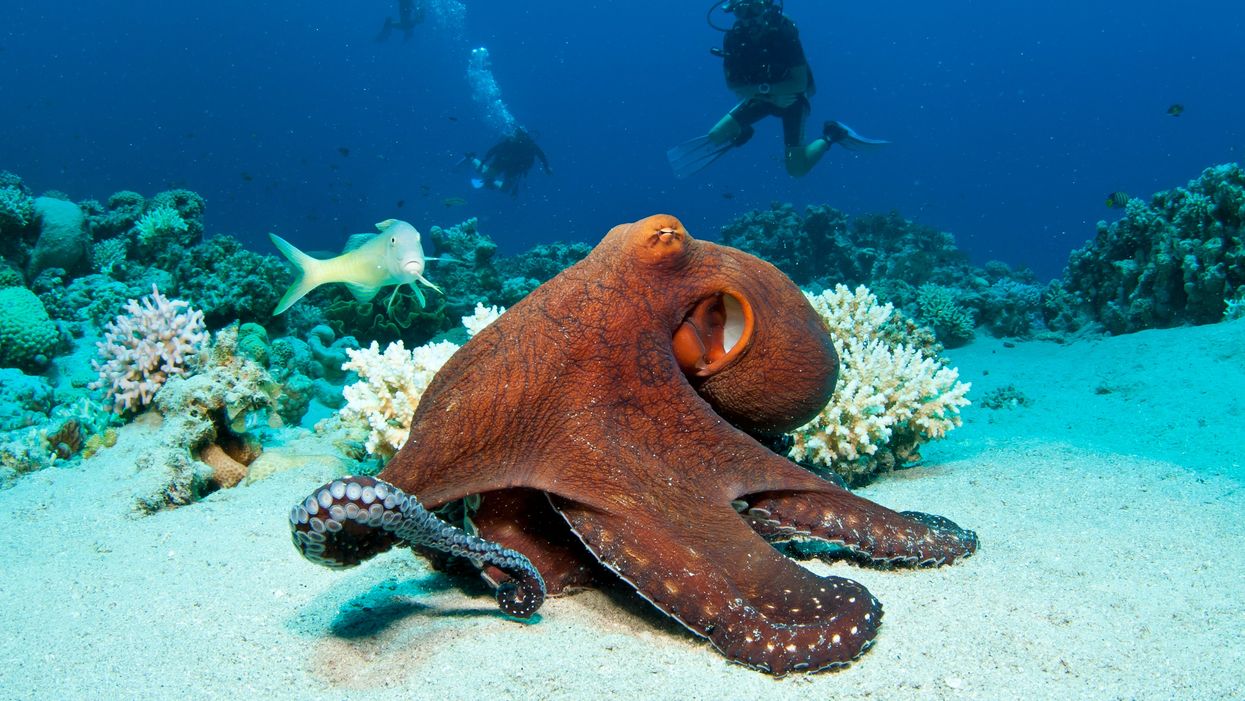
An octopus on the bottom of the sea.
An octopus has a sleep cycle resembling humans and other mammals, even though they have 500 million years of evolution separating them, research suggests.
The eight-legged sea creature has periods of “quiet” and “active” just like mammals’ REM cycle, according to a report in iScience, and it suspected they might even have dreams.
“If they are dreaming, they are dreaming for up a minute,” Sidarta Riberio, a neuroscientist at the Brain Institute, a part of the Federal University of Rio Grande do Norte in Brazil told NPR.
Scientists have long established that octopi change colour when they sleep, and footage of this happening has gone viral. Other people have argued that cuttlefish also experience REM sleep.
No research was done into if the sea creatures would react to prey, Riberio said, which means these creatures could be on a constant state of alert.
To check this, Riberio and the team recorded four octopi and monitor their sleep. To ensure that they were really asleep, they played a video of crabs to see if they would be stirred or sounds that mimicked vibration.
The sea creatures were completely indifferent to these disturbances when they were sleeping, and did not react in ways they would if they were awake. This research found that they had sections of quiet sleep, and during this time, their bodies were pale and still, and then transitioned into active sleep. This repeated every 30 to 40 minutes.
Active sleep was short but noticeable, as their skin darkened and their suckers went in.
“For around 40 seconds, they dramatically change their colour and their skin texture. Their eyes are also moving.” said Sylvia Mederios, a graduate student working on the study, “All of this happens very conspicuously.”
Medeiros asserted that because of the briefness of their active sleep if they did dream, these would not be very complicated. Octopi are known for their immense intelligence so it thought their dreams might aid this, as it helps lock in memories.
Carrie Albertin, a Marine Biologist at Marine Biological Laboratory in Woods Hole, Massachusetts said about the amazing sea creature: “I think as you watch these animals, it’s really hard to deny that something is going on, but it's really important to quantify it and do the study and set up the study so that you can characterise it in a rigorous way. And that’s exactly what this group has done.”, concluding that this is a good foundation for understanding octopi.













